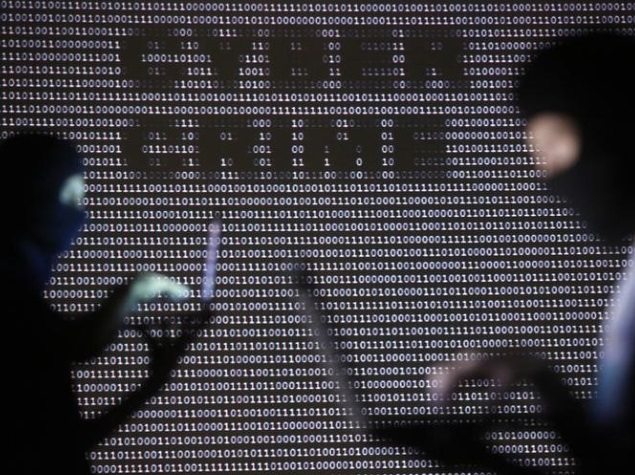- Home
- Social networking
- Social networking Features
- In Twitter Hack, Pentagon Learns Perils of Social Media Exposure
In Twitter Hack, Pentagon Learns Perils of Social Media Exposure

In the wake of Monday's breach of US Central Command's Twitter and YouTube feeds by apparent sympathizers of the Islamic State militant group, U.S. officials updated passwords and some distributed tip-sheets to help bolster online security.
But they showed no sign of shifting a social media strategy that has seen thousands of Facebook, Twitter and other accounts blossom as the world's most powerful military establishes an Internet presence that matches the global reach of its forces.
That large online profile carries unique risks for the military.
"It's their public face," said Ben FitzGerald at the Center for a New American Security think tank.
"So someone sitting in Baghdad isn't going to necessarily pick up the nuance that this is a non-military network and not a significant hack. So they're looking silly and they're looking weak."
The U.S. Department of Defense has "thousands and thousands" of social media accounts, said Colonel Steve Warren, a Pentagon spokesman. They are seen as a fast and effective way for the U.S. military to communicate with its own personnel and families about everything from on-base social events to power outages.
"We are certainly looking at our systems and will refine them as needed," said Warren.
Although a review of the incident was under way, he said, there had been no specific department-wide instructions issued since Monday to strengthen security across social media.
The Twitter and YouTube breach is far different than the one in 2008, when malware believed to have been crafted by a foreign intelligence service infiltrated Central Command's internal computer systems.
That attack was a dramatic illustration of the risks to military and defense-related networks critical to U.S. security, and triggered a massive expansion of cyber-defense efforts.
Monday's hack also did not lead to any theft or disclosure of classified information, officials said. But it delivered a highly symbolic blow by compromising the social media accounts of the military command overseeing sensitive operations in Iraq and Syria during a time of conflict.
It was a reminder of the perils of social media for an institution that prides itself on its vast security and image of unrivalled global power.
"Watch your back"
The hackers posted what officials said appeared to be authentic, but unclassified, rosters of current and retired top brass, including some private email addresses. They also posted messages, including: "American soldiers, we are coming, watch your back."
Unlike most high-profile accounts, the Twitter feeds used by Central Command were not "verified," which would have added another layer of security and required harder-to-break government email accounts to be set up, officials told Reuters.
Still, it is unclear such steps would have prevented the hack, which is being investigated by the FBI and the military.
A source familiar with the inquiries said investigators were examining whether cyber-attackers sent "phishing" messages that tricked Central Command personnel into revealing shared logins and password information.
President Barack Obama said Tuesday's hack and others show "how much more work we need to do, both public and private sector, to strengthen our cyber-security."
Still, hacking into Central Command's Twitter feed is far easier - and entirely different - than gaining access to its internal networks, something the military has devoted vast resources to defending, analysts say.
"It's really not that difficult to gain access to someone else's social media or e-mail account," said Michael Smith, principal and chief operating officer of Kronos Advisory, a private intelligence group focused on counterterrorism.
Smith said such incidents occurred often at Twitter.
In 2013 hackers took control of the Associated Press Twitter account and sent a false tweet about explosions in the White House that briefly sent U.S. financial markets reeling.
"Hacking a Twitter is about the equivalent of spray-painting a subway car," a former senior U.S. intelligence official said.
Senator Dan Coats, a member of the Senate Select Committee on Intelligence, said the incident highlighted cyber-security risks. But he said the solution was better cooperation between the public and private sectors, not retrenchment from social media.
"If the U.S. military - or State Department, White House, members of Congress - stayed off Twitter, YouTube and other social media sites because of the vulnerabilities inherent in those services, then the terrorists win," Coats said.
© Thomson Reuters 2015
Catch the latest from the Consumer Electronics Show on Gadgets 360, at our CES 2026 hub.
Related Stories
- Samsung Galaxy Unpacked 2025
- ChatGPT
- Redmi Note 14 Pro+
- iPhone 16
- Apple Vision Pro
- Oneplus 12
- OnePlus Nord CE 3 Lite 5G
- iPhone 13
- Xiaomi 14 Pro
- Oppo Find N3
- Tecno Spark Go (2023)
- Realme V30
- Best Phones Under 25000
- Samsung Galaxy S24 Series
- Cryptocurrency
- iQoo 12
- Samsung Galaxy S24 Ultra
- Giottus
- Samsung Galaxy Z Flip 5
- Apple 'Scary Fast'
- Housefull 5
- GoPro Hero 12 Black Review
- Invincible Season 2
- JioGlass
- HD Ready TV
- Laptop Under 50000
- Smartwatch Under 10000
- Latest Mobile Phones
- Compare Phones
- OPPO Reno 15 Pro Max
- Honor Win RT
- Honor Win
- Xiaomi 17 Ultra Leica Edition
- Xiaomi 17 Ultra
- Huawei Nova 15
- Huawei Nova 15 Pro
- Huawei Nova 15 Ultra
- Asus ProArt P16
- MacBook Pro 14-inch (M5, 2025)
- OPPO Pad Air 5
- Huawei MatePad 11.5 (2026)
- Xiaomi Watch 5
- Huawei Watch 10th Anniversary Edition
- Acerpure Nitro Z Series 100-inch QLED TV
- Samsung 43 Inch LED Ultra HD (4K) Smart TV (UA43UE81AFULXL)
- Asus ROG Ally
- Nintendo Switch Lite
- Haier 1.6 Ton 5 Star Inverter Split AC (HSU19G-MZAID5BN-INV)
- Haier 1.6 Ton 5 Star Inverter Split AC (HSU19G-MZAIM5BN-INV)

















